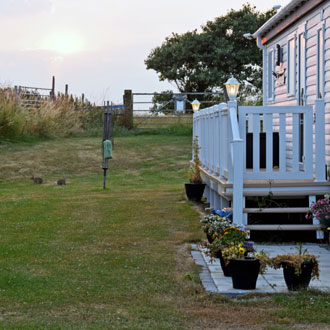Caravanning on a farm in the winter?
Caravanning on a farm in the winter? Here’s how farmers can set up a caravan site, and what caravanners can do to keep warm.
“Land” they say, “is the ultimate commodity”. Aside from making good housing development and festival sites, farmers are also leasing out their agrarian lands to campers and caravanners. With an estimated 18 million separate camping and caravan expeditions in the UK every year, it’s clear there is money to be made here.
As caravanners (campers less so) we are also moving away from the seasonal limitations that our cold, northerly climate has previously impinged on us. That may be due to technological advancements — such as improved plumbing, heating, and Internet connections that can make our caravans a little cosier just like our permanent homes.
And with a relatively healthy but ageing population, there are more people who are able to keep the party going for extended periods into the winter months.
And why not? Winter can throw up perfectly sunny, enjoyable days, even if they are colder and shorter.
For caravanners: here’s how to live and winterise a static caravan for the colder months.
Caravanning in rural spaces used to be difficult, but it isn’t really anymore thanks to technological changes in insulation, heating, and plumbing. However there are still some challenges, especially at the coldest times of the year. Here is what you can do as a caravanner to ensure a comfortable and issue-free winter:
- Insulate the windows and floors. This can be done relatively painlessly, by getting out thermal curtains and rugs to trap escaping heat. On
 the coldest days, it is also recommended to cover the windows with boards of foam insulation. Although that will stop you looking out of the window, the coldest time tends to be at night when you are sleeping.
the coldest days, it is also recommended to cover the windows with boards of foam insulation. Although that will stop you looking out of the window, the coldest time tends to be at night when you are sleeping.
- Use a dehumidifier to keep water out. A humidifier will keep the air dry and clear the air, keeping mold away. A vent cover will keep the heat in and maintain the air flow.
- Leave the water tank empty. Water has the nasty habit of freezing in pipes and causing massive damage. Better to leave it empty and use onsite facilities instead. If you absolutely need to use the water, take steps to insulate the pipes.
- Use space heaters, and even sleeping bags. Heaters are indispensable when the temperature drops considerably below zero. Sleeping bags, on the other hand, are incredibly warm, comfortable and convenient to sleep in anyway. Don’t be too proud to use one.
For farmers: here’s how to provide a home for caravanners over the winter.
If you have an unproductive field and are looking to earn a little extra income over the winter, you are almost certainly allowed to welcome caravanners on to your land. However, you might need planning permission — it all depends on the number of caravans you are inviting and the facilities that you offer.
You will only need planning permission if the number of caravans exceeds FIVE for the whole winter. You can also invite as many as you want for a honeymoon period of 28 days. After the 28 days, the law requires you to have planning permission.
You will also need to be certified with the Caravan Club or the Camping and Caravan Club. You can provide utilities such as water and electrics without planning permission. If you are planning to repurpose a nearby building into toilets or showers (or other facilities for your caravanners) you still won’t need planning permission. But you may need to apply for what’s known as a Change of Use for the building.
But the likelihood is your local authorities will welcome the move, as it could boost micro tourism in the area.
As always, though, if in doubt check with the local authorities. Once everything is settled, you can sit back and enjoy the extra income, and the wellbeing of knowing you are making someone’s holiday last a little longer.
-
Jade Myers is a writer for We Buy Any Motorcaravan and has written extensively on the challenges and rewards of winterising a caravan and winter living in a caravan.
- Log in to post comments

